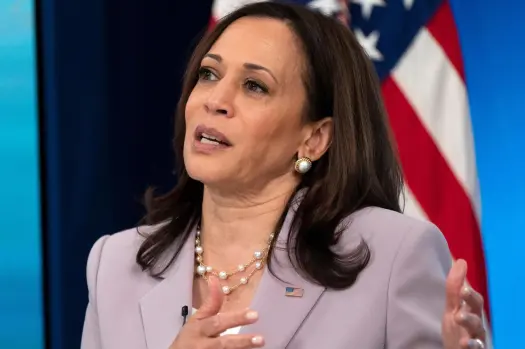US Vice President Kamala Harris was severely trolled after she mistakenly proposed population reduction instead of pollution on Friday.
During a speech at Coppin State University in Baltimore, Maryland, she seemingly made a statement that appeared to suggest reducing the population as a means to achieve cleaner air and drinking water.
Also read | Who is Shotzi Blackheart’s sister Shawn?
Harris made a controversial claim in a speech about combating climate change and advancing a clean energy economy. She said, “More of our children can breathe clean air and drink clean water when we invest in clean energy, electric vehicles, and population reduction.”
Her comments regarding population reduction and its impact on environmental issues quickly gained attention on social media platforms. The remarks raised concerns and drew reactions from various individuals and organizations, including the Republican National Committee (RNC) and other party members.
Also read | Who is Craig Heuermann, Rex Heuermann’s younger brother who killed a police inspector in 1988?
Several people trolled the Democrat on Twitter. One user wrote, “Reduced Population? YOU are the carbon they want to reduce! Kamala Harris is the worst…”
“How you got in the position you are in is beyond me. Ur crooked and a sham,” another user tweeted.
One user tweeted, “Whoever wants to reduce carbon by reducing population or making a carbon fee/tax, should actually volunteer to go first.”
Also read | Joe Mixon agrees to restructured contract with Cincinnati Bengals | Details
In response to Vice President Kamala Harris’ remarks, conservative commentator Tomi Lahren asserted that her assertion concerning population reduction was proof of a long-held Republican conspiracy theory. He claimed that Harris accidentally disclosed Lahren’s claim that Democrats sought to reduce the population. However, the White House eventually corrected Harris’s remarks in the speech’s official transcript. In the revised transcript, “population” was changed to “pollution,” implying that the initial statement was a misunderstanding or a mispronounced word.







